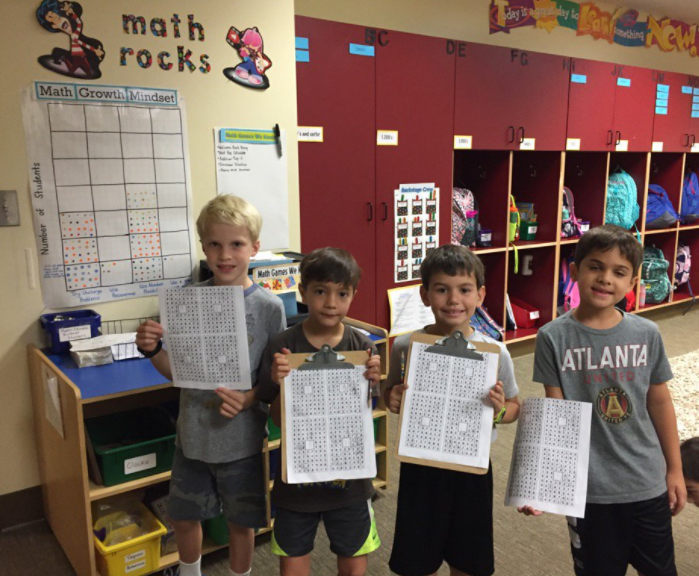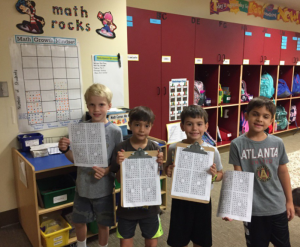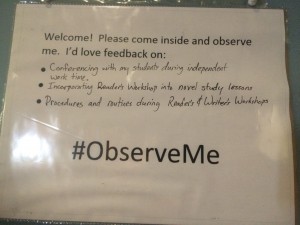
When I was an elementary-school student, I hated math time. My brain didn’t work as quickly with numbers as many of my other friends and peers, and I felt that I was “bad” at math. Unfortunately, I had this misconception until I was 33 years old when I began my three-year goal study at Trinity School.
When I think back three years ago when I decided to focus on the math growth mindset for my goal, I can remember having a feeling of trepidation; however, I knew that I needed major growth in this area if I wanted to be a better math teacher myself. I began my journey by taking Jo Boaler’s online course, which is what I truly believe was the turning point in my philosophy about being “good” or “bad” at math. I not only learned that all math minds are different and have different speeds and ways of thinking about numbers, but I also came to believe in my own heart and mind that anyone can be “good” at math, including me!
It was at that point that I noticed a shift in the way I thought about math and taught it to my own students. I spent nights at home searching for math challenges for my students and myself and felt an invigoration when working hard to complete them. I shared this attitude in my classroom and soon noticed my students were working on these challenges during snack tim e, way after math time was over, because they wanted to persevere. Soon my twitter account was full of smiling student faces that were posing with pictures of their completed math work and I was hash-tagging the “math growth mindset” numerous times a week. We began celebrating our work together by charting our attitude and successes and in no time the students began using math vocabulary regularly when talking about math and even in other subject areas too! They understood terms such as “number flexibility” and felt excited to not only talk about it, but also prove they could do it.
e, way after math time was over, because they wanted to persevere. Soon my twitter account was full of smiling student faces that were posing with pictures of their completed math work and I was hash-tagging the “math growth mindset” numerous times a week. We began celebrating our work together by charting our attitude and successes and in no time the students began using math vocabulary regularly when talking about math and even in other subject areas too! They understood terms such as “number flexibility” and felt excited to not only talk about it, but also prove they could do it.
One of the more exciting highlights from the past three years was when I read the book, Making Number Talks Matter, and began implementing number talks in my classroom. Number talks have been a wonderful teaching strategy that allows the students to feel comfortable with math and helps them appreciate the idea that there are many ways to solve a math problem. It also has helped me informally assess my students’ understandings and given opportunities for every voice to be heard in math.
The completion of my three-year goal study came with a feeling of pride, confidence, and a math attitude change. I have pride and confidence in my ability to teach math to a younger generation of students. Many of these students are young versions of myself who long to feel “good” at math, and I love being able to impart my own newfound math growth mindset on them.
Learner, Thinker, Writer: Sarah Hanzman serves the Trinity School community as a Second Grade Teacher.
